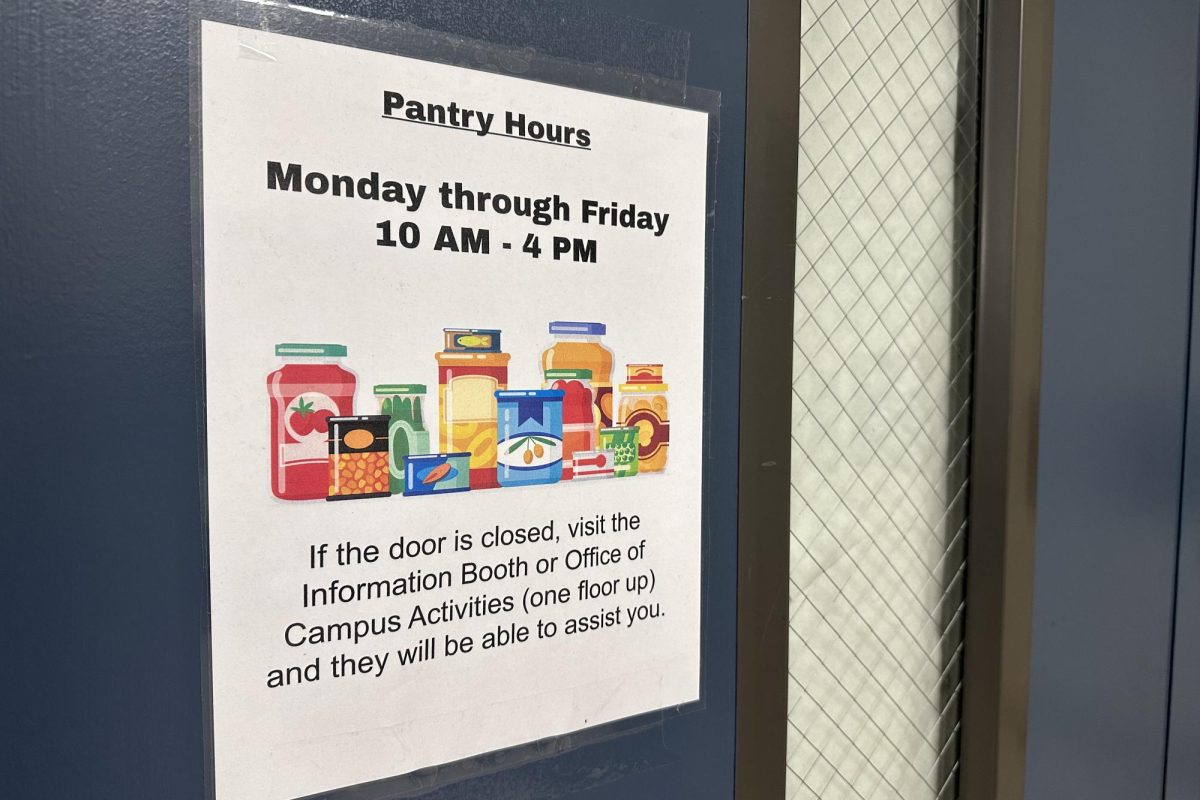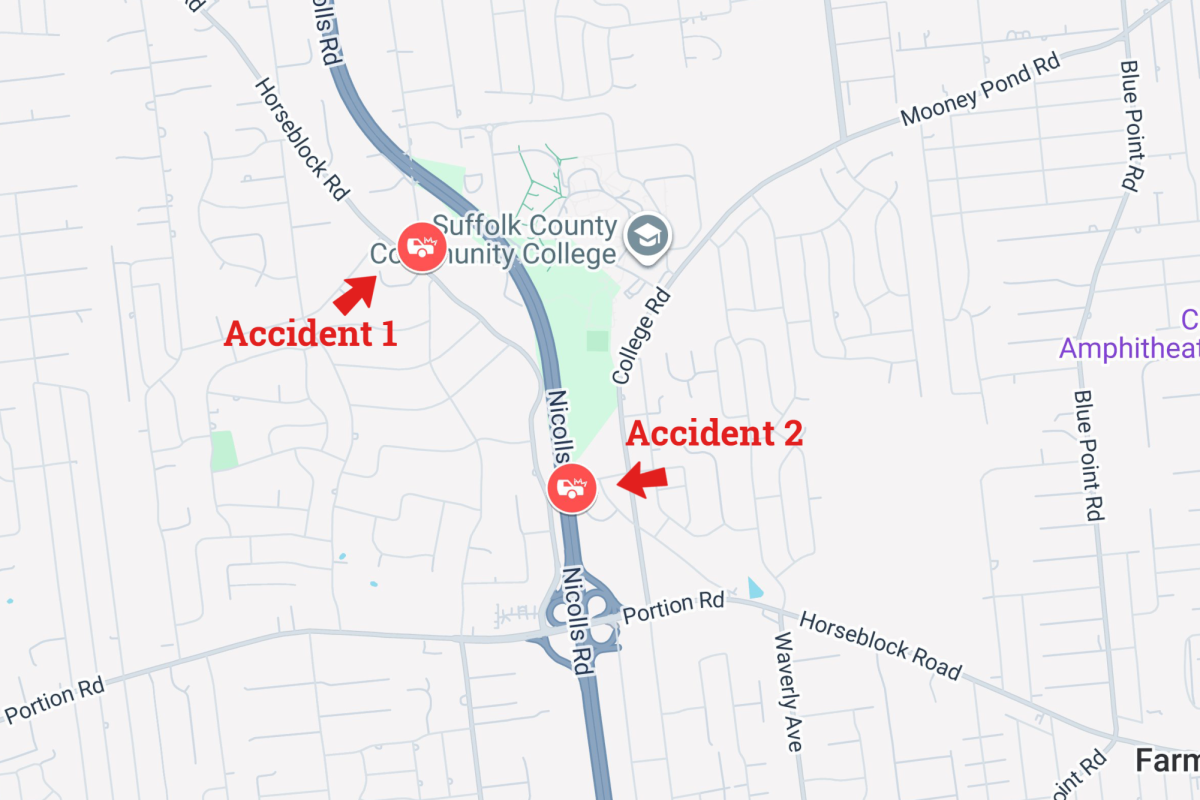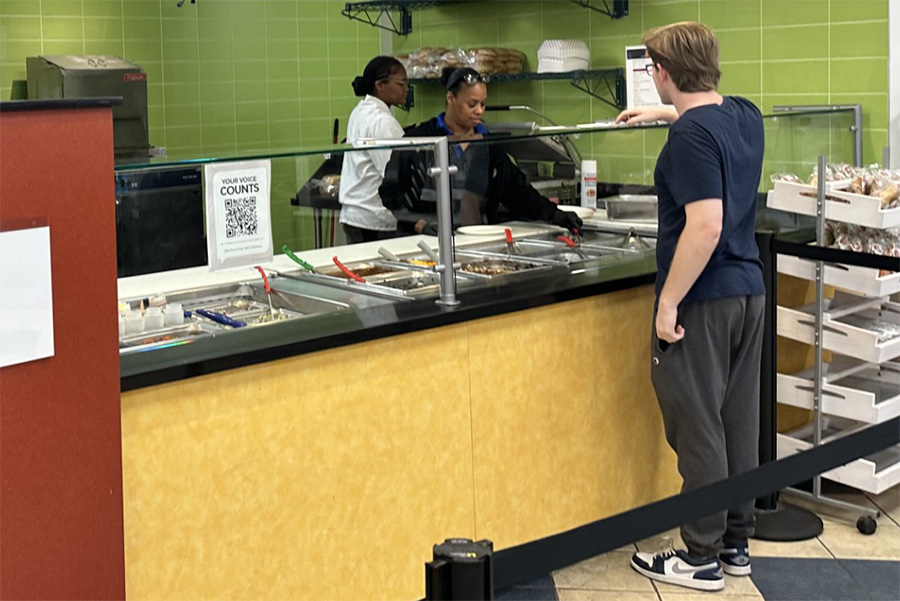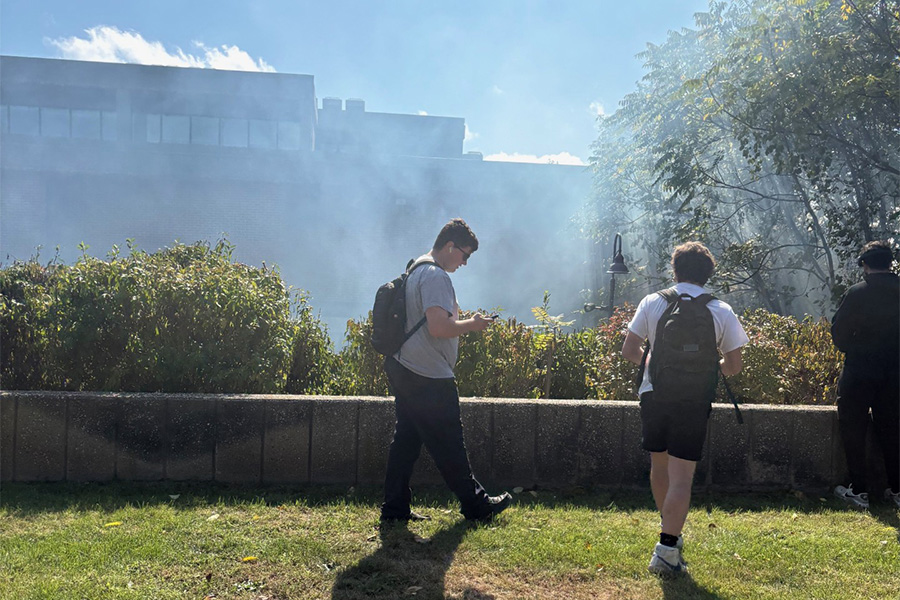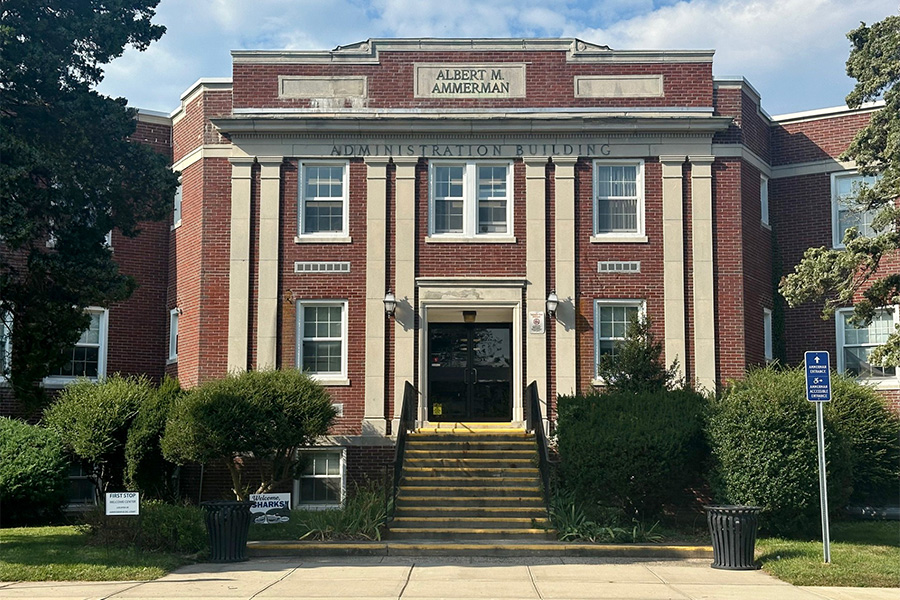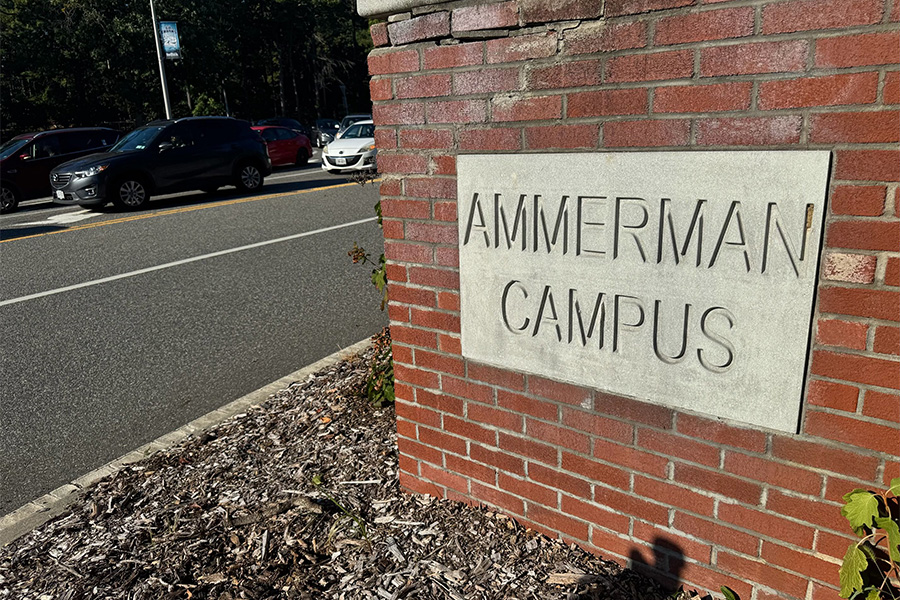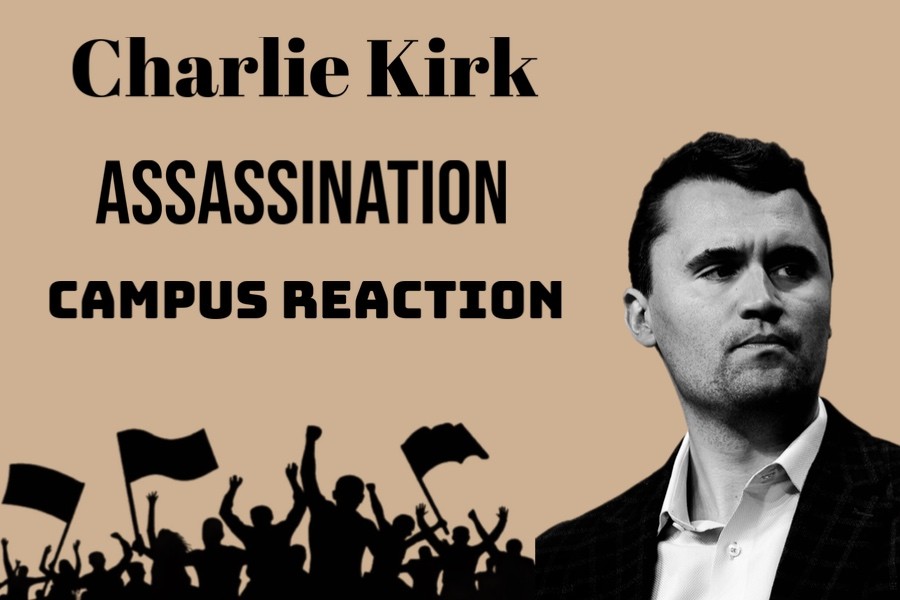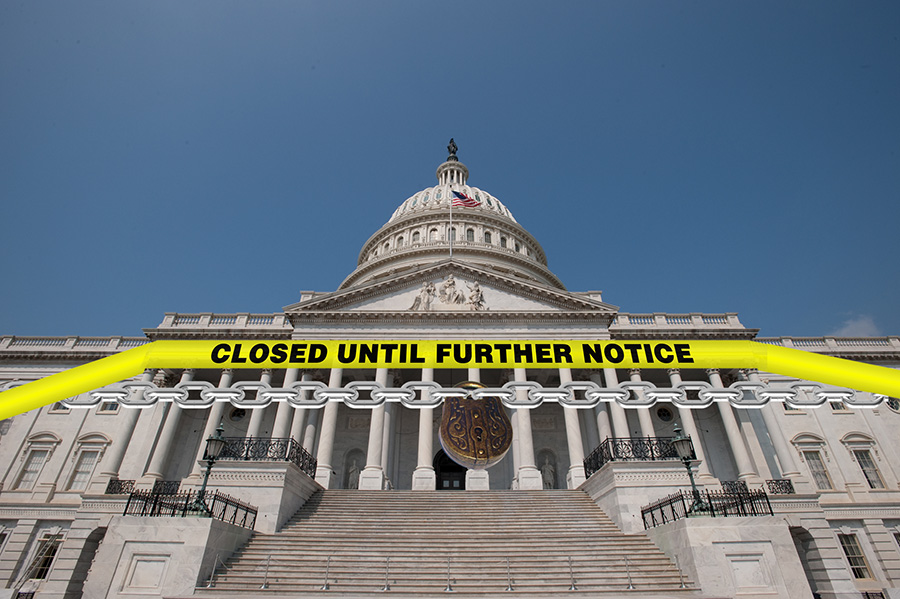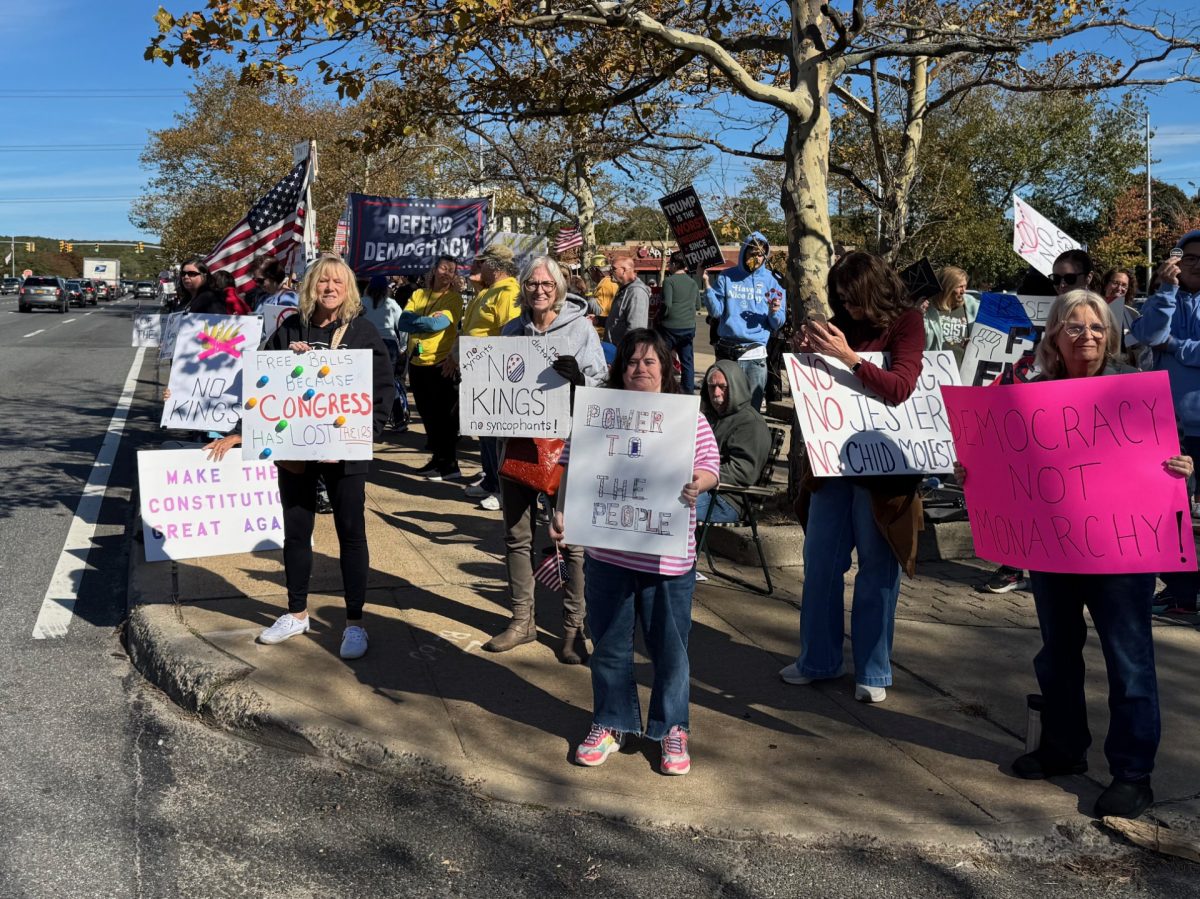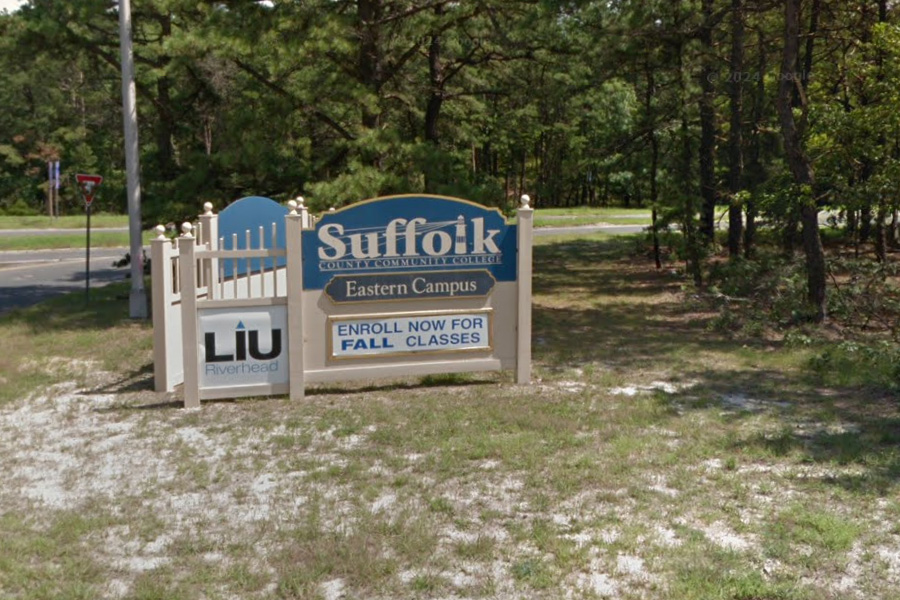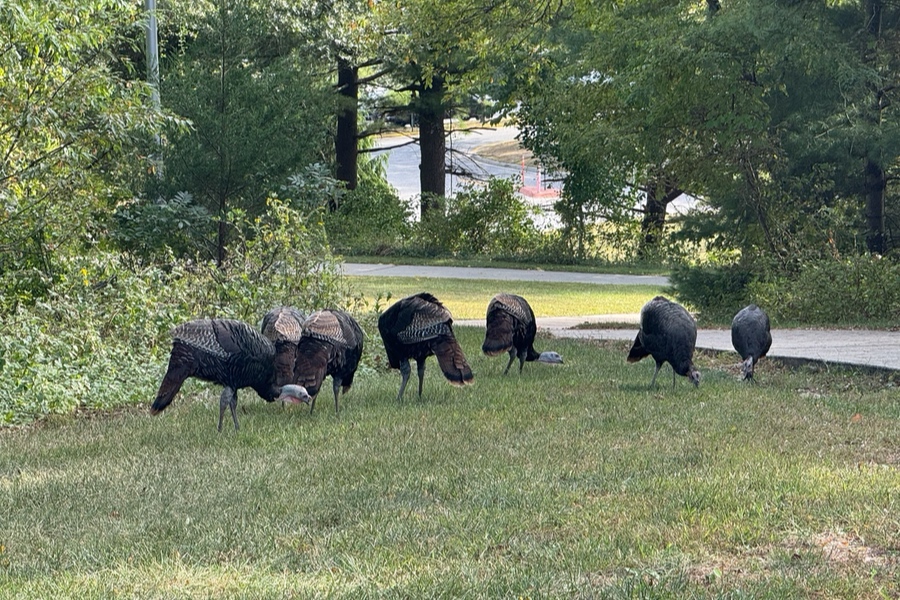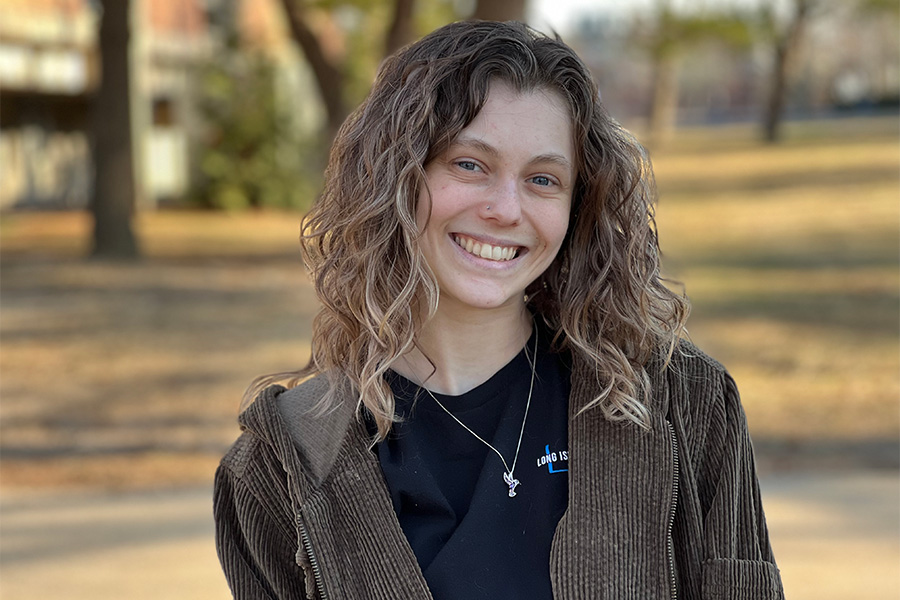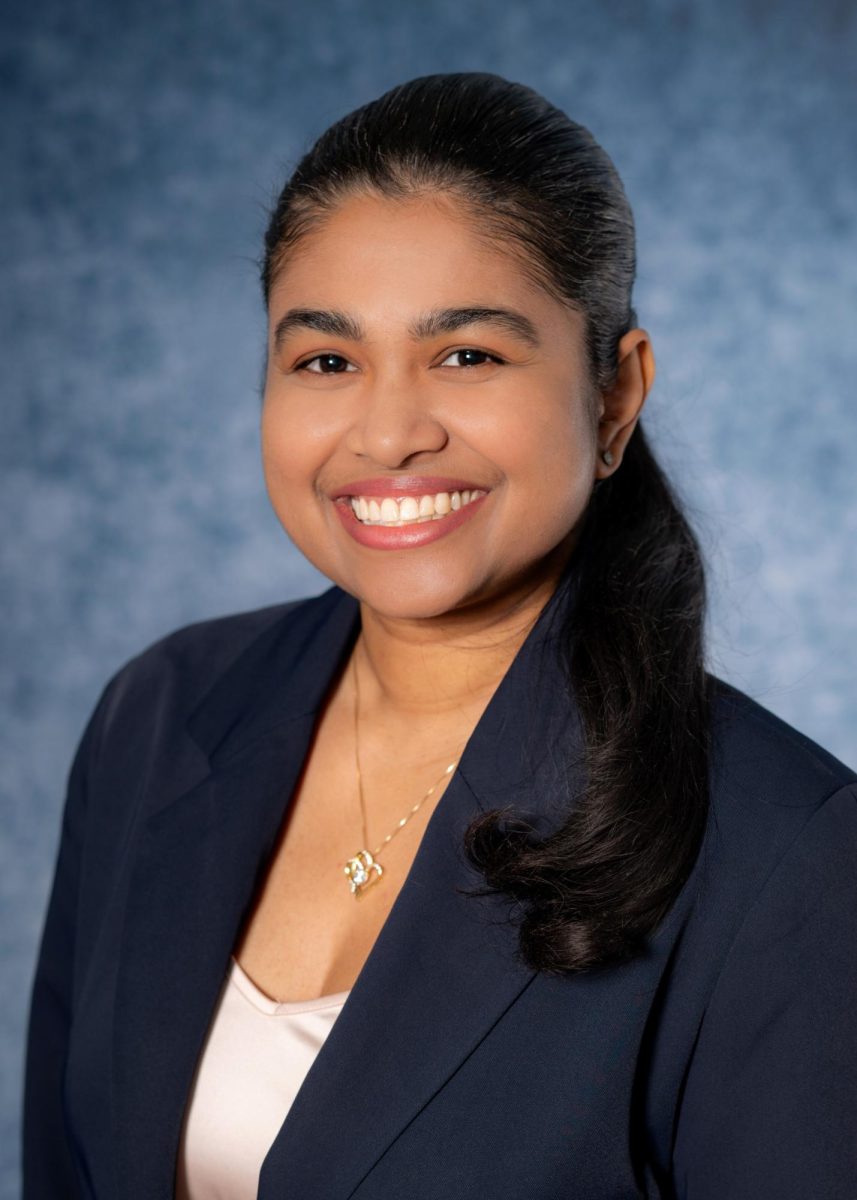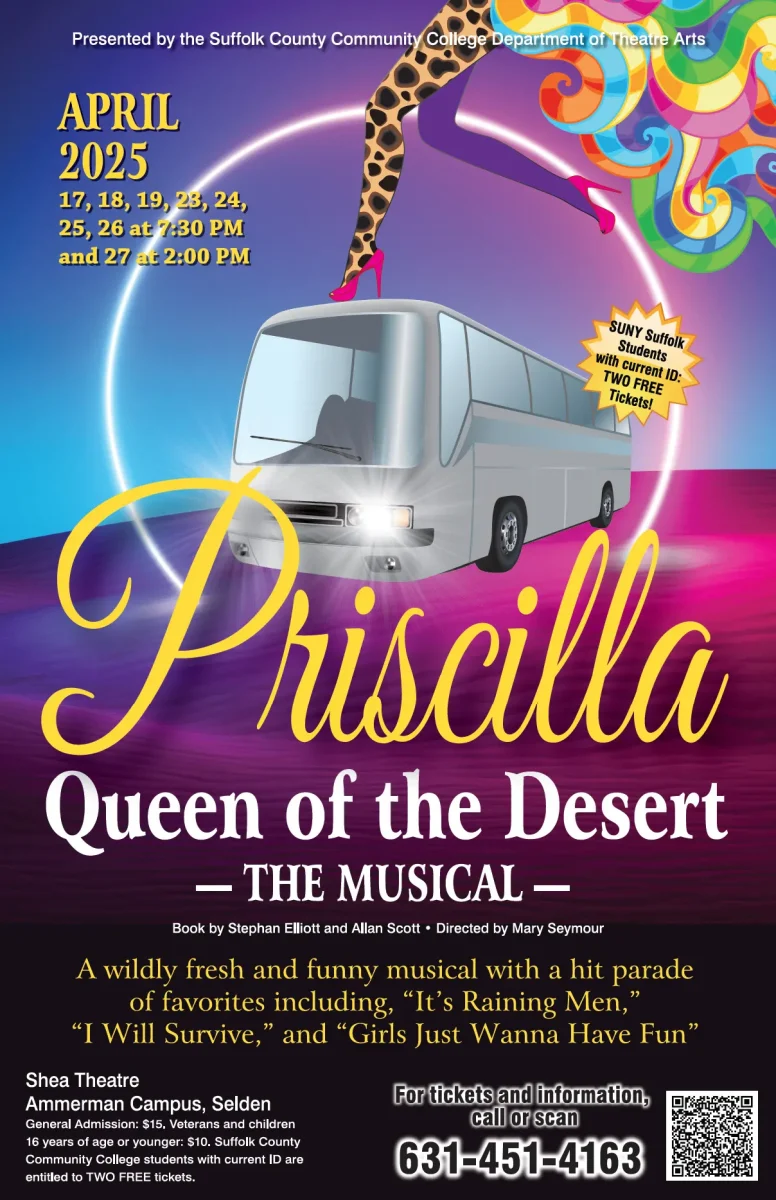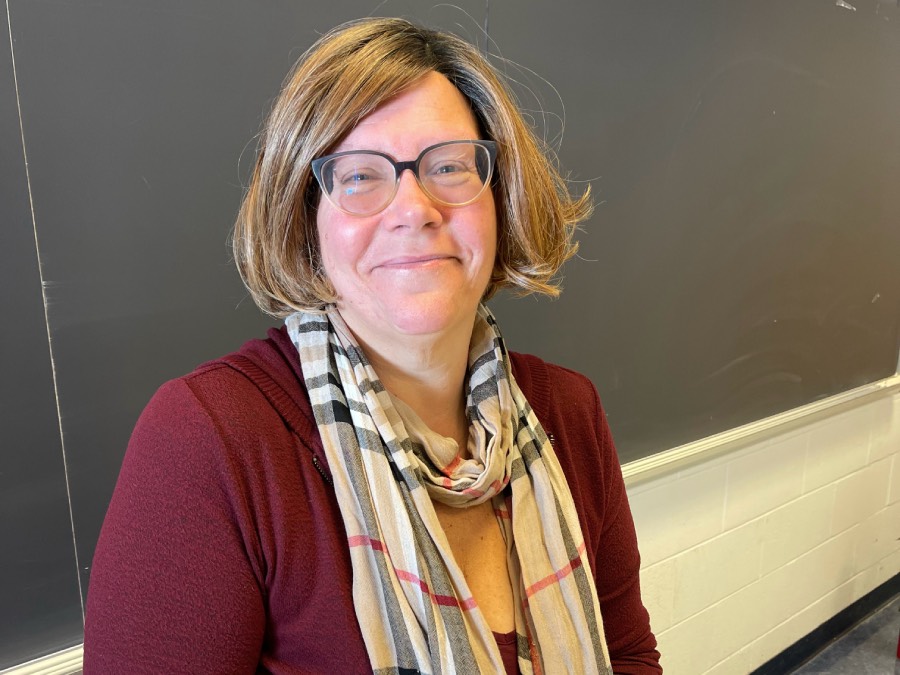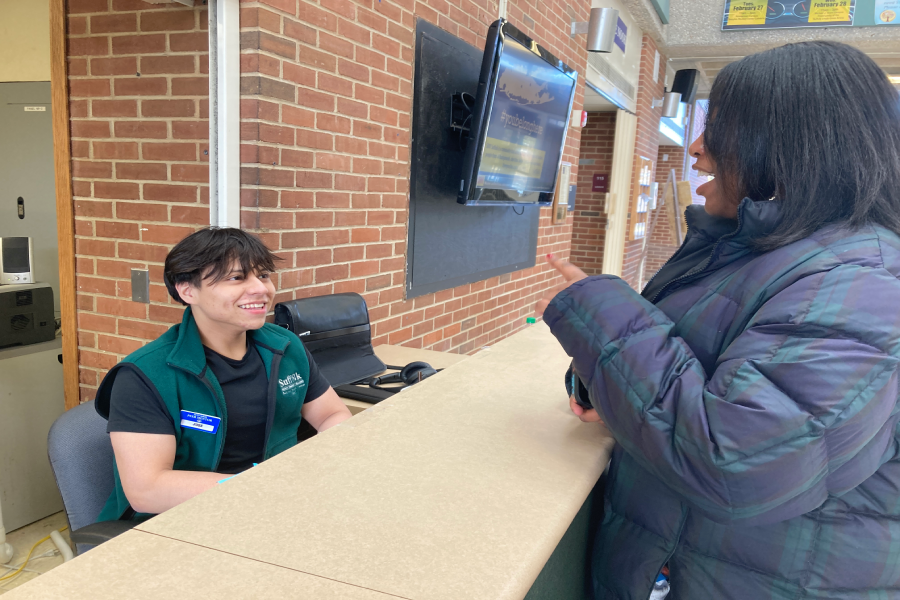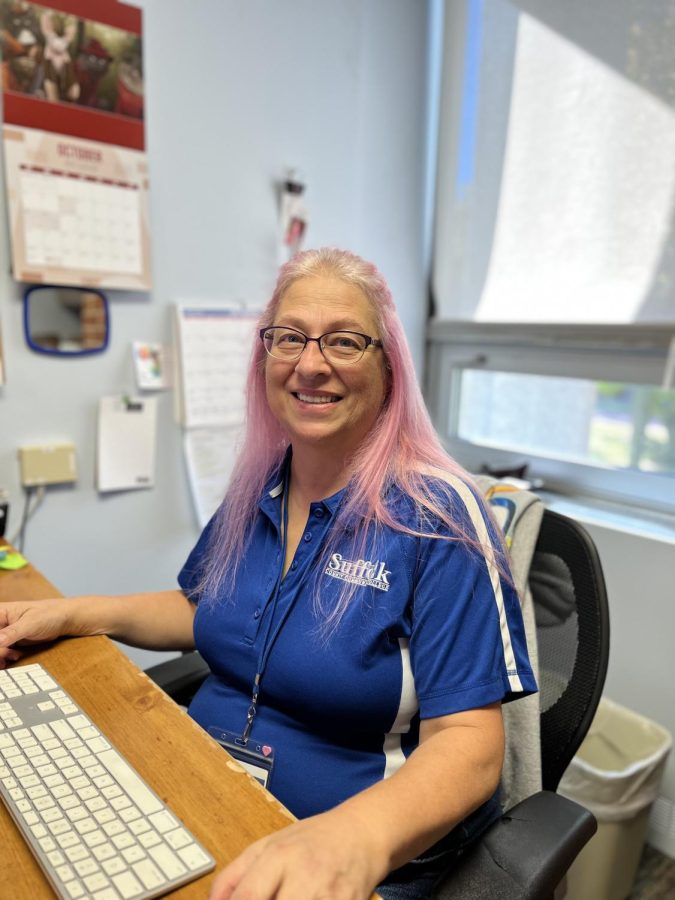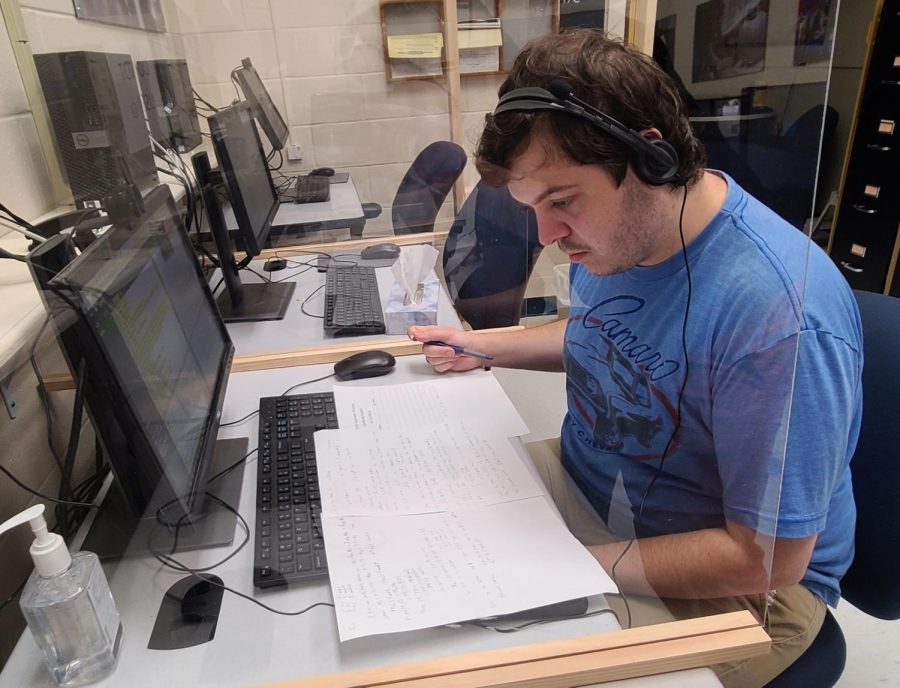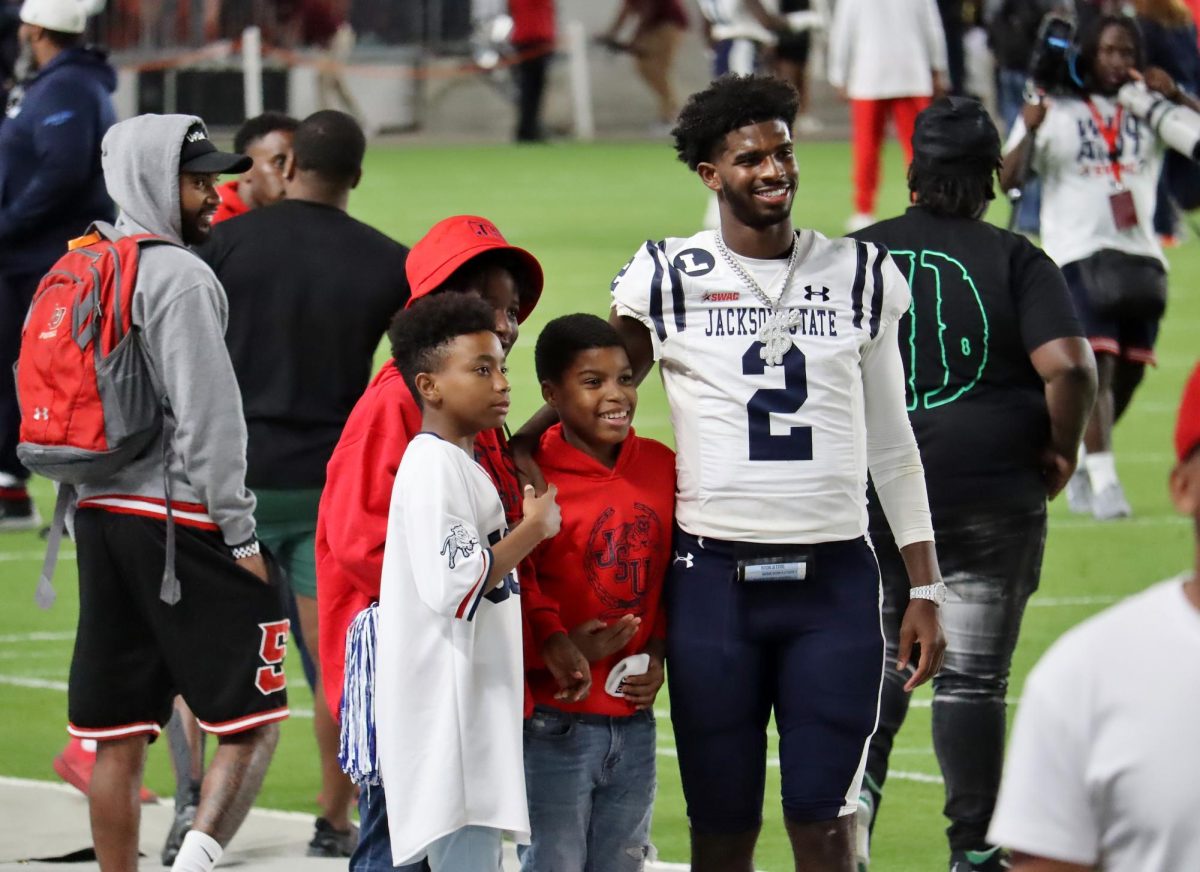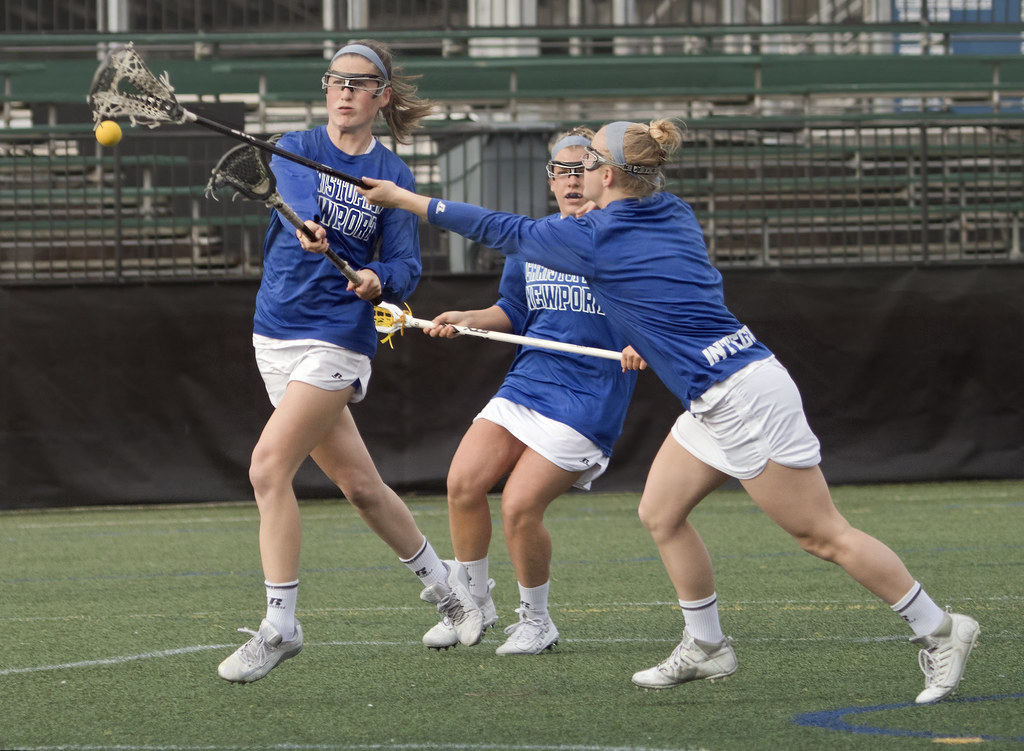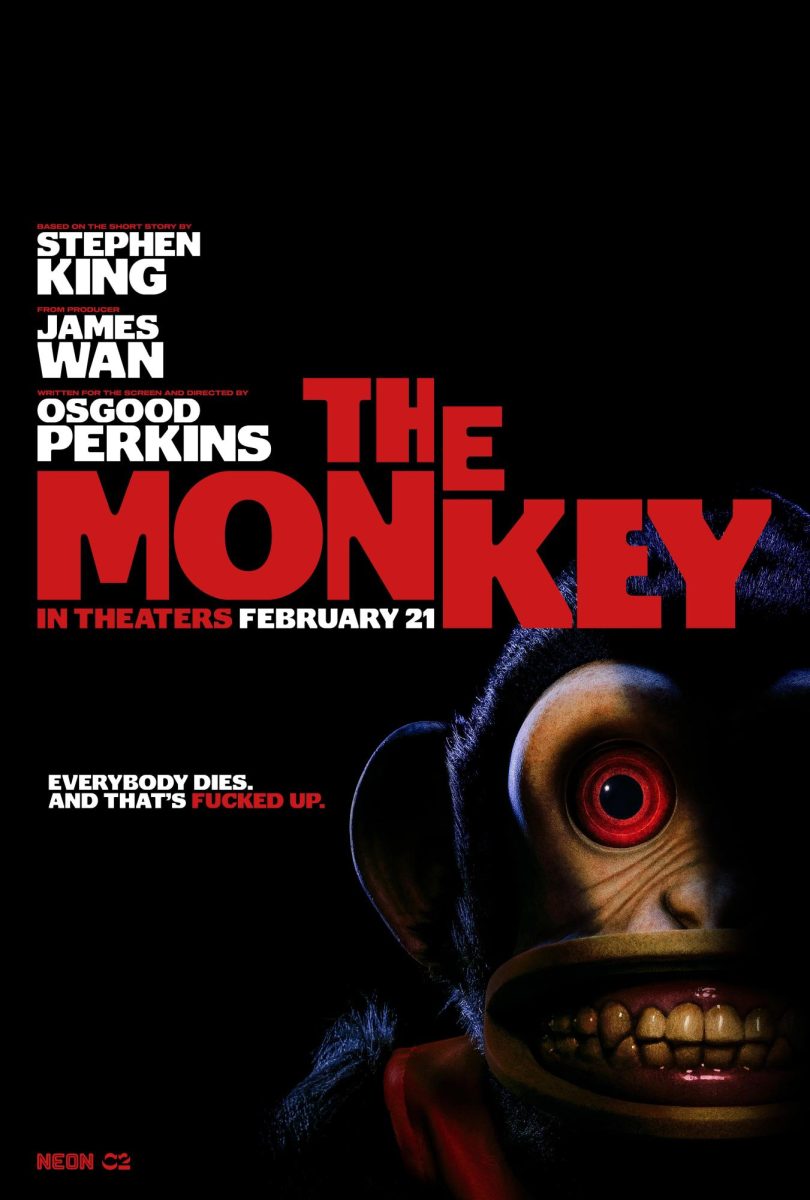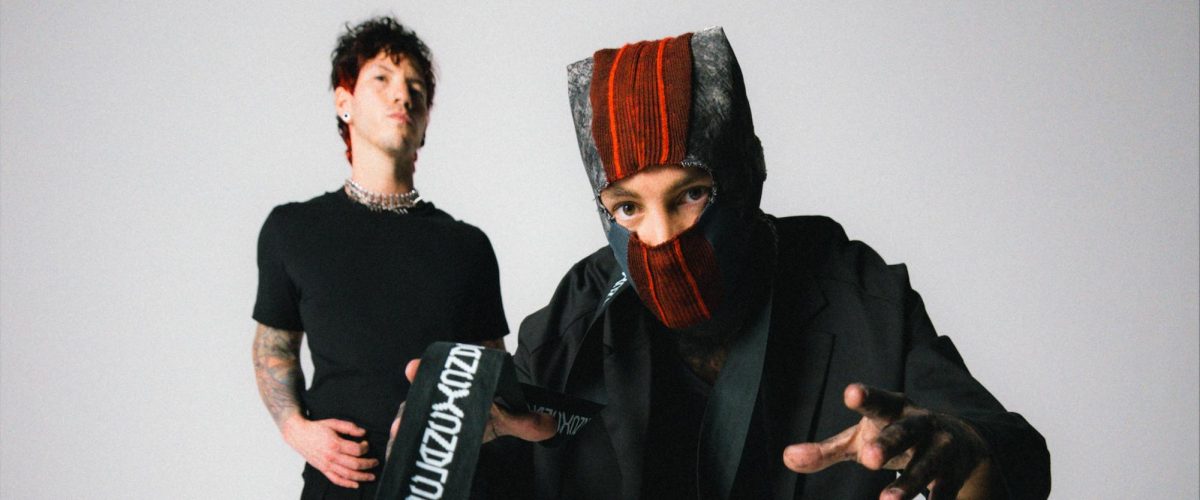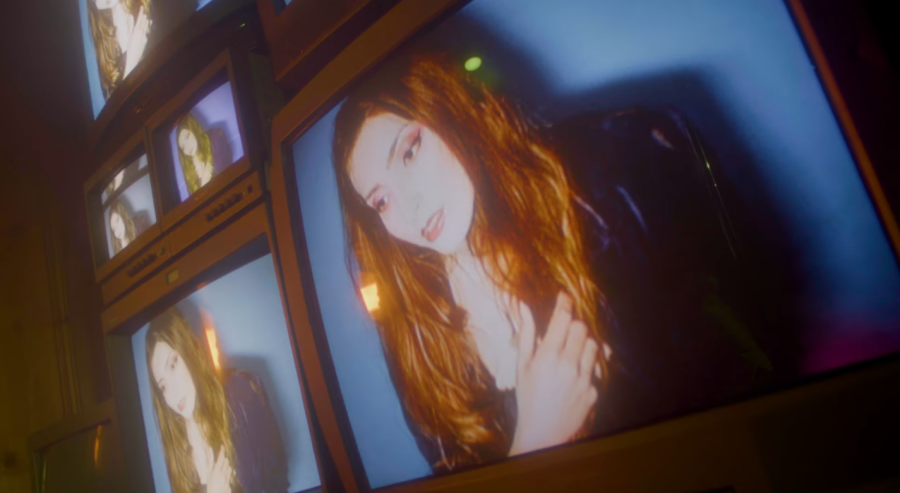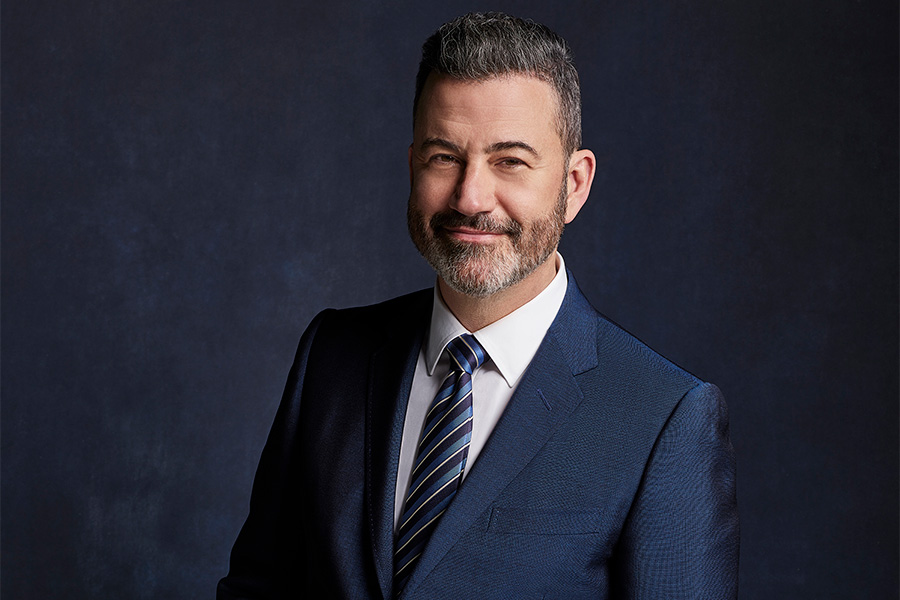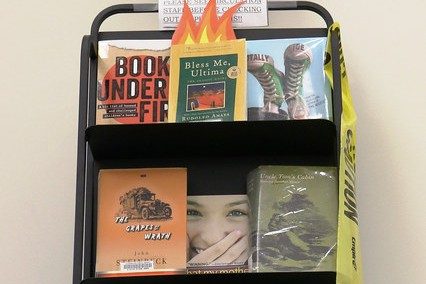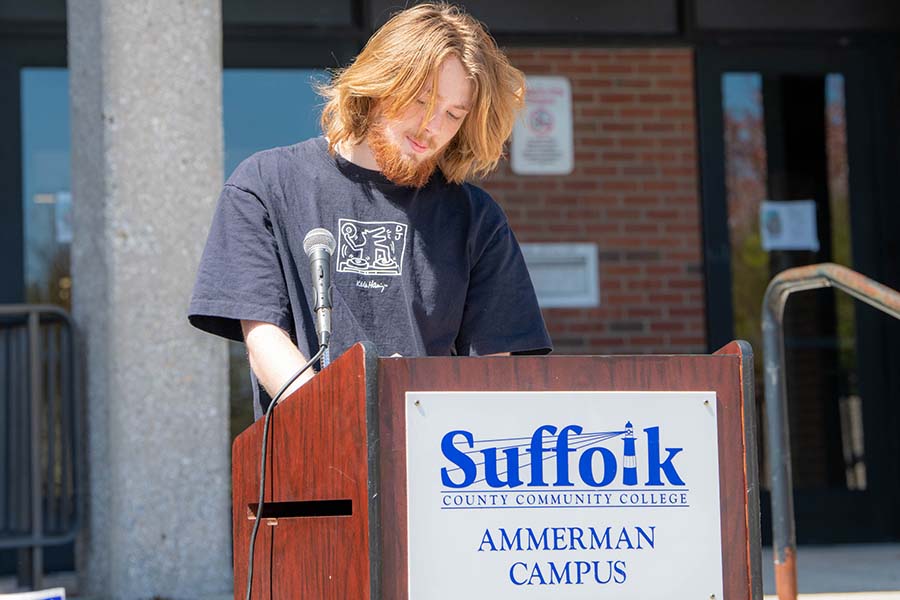LGBTQ+ Banned Book Read-Out Stands in Solidarity Against Censorship
Kai Helenius, 18, of Mastic Beach, reads at the LGBTQ+ Banned Book read-out on the Ammerman campus on Wednesday, April 20, 2022. According to a report by PEN America, 1,586 books with topics about the LGBTQ+ community, comprehensive sexual education, race and racism have been banned in school districts across the United States in the last nine months.
May 4, 2022
Kai Helenius walked up the steps leading to the Huntington library and took his place behind a wooden podium set up at the top. He opened the pages of “Odd One Out,” the book he selected to read aloud that Wednesday morning at the LGBTQ+ banned book read-out. For the next five minutes, he recited its pages, and the words of the fictional, young-adult novel resonated throughout the Ammerman campus.
“Odd One Out,” a 2018 title by Nic Stone, is banned in the Indian River County School District in Florida and the North East Independent School District in Texas. It is one of 11 banned books that were read aloud on April 20 by students, staff and faculty members of Suffolk County Community College to stand in solidarity against the censorship of children’s and young adult’s LGBTQ+ books in schools.
“Small changes spread out over a long period of time tend to create a pattern of greater change, and this is our contribution to that,” said Helenius, an 18-year-old creative writing major on the Ammerman campus.
Book bans are actions taken against a book based on its content and are a result of community challenges, administrative decisions, or in response to threatened action by lawmakers or government officials. Books are typically banned when people feel a book offends their religious, political, or moral views. This means a previously accessible book is removed or restricted from availability to students.
Though challenging and banning books has been a recurring event throughout American history, within the last year, censorship of books about the LGBTQ+ community, comprehensive sexual education, race and racism are disappearing off the shelves of libraries and classrooms across America at an alarming rate.
According to an analysis by international literary and human rights organization PEN America,, from the beginning of July 2021 to the end of March 2022, 1,586 books were banned in 2,899 schools across 26 states-schools with a combined enrollment of over two million students. Currently, school districts in Texas have the most banned books at 713, followed by Pennsylvania with 456, and Florida with 204.
“Our professional focus is always to make sure our collections include books that represent all identities and all points of view in a given society,” said Susan Wood, chairperson of the Suffolk LGBTQ+ Task Force and associate professor of library services at the Eastern campus. “Censorship is a reactionary response to social change that has already happened. Reading banned books is to counter, and to show the absurdity of censoring these children’s and young adult books, which are about love, friendship, and growing up. They’re about positive identification. So I wanted people to hear the books, but I also want them to know they can take action by voting,” Wood said.
Bambi La Gattuta-Pennetti, a 25-year-old visual arts major and leader of the LGBTQ+ club on the Michael J. Grant campus, read a passage from “Cemetery Boys,” a young-adult fantasy novel written by Aidan Thomas which is banned in school districts in Florida and Texas.
“Everyone has their own standards and things that they don’t agree with. But I think it’s still good to read up on it. It’s good to be informed,” said La Gattuta-Pennetti. “This was an event that was held in reaction to something very sad, but I feel like it kind of gives hope. It shows that Queer books are still here,” he added.
“Events like the read-out are important in building connections,” Helenius said. “A gathering like this reminds our community they are not alone in condemning bigotry.”

